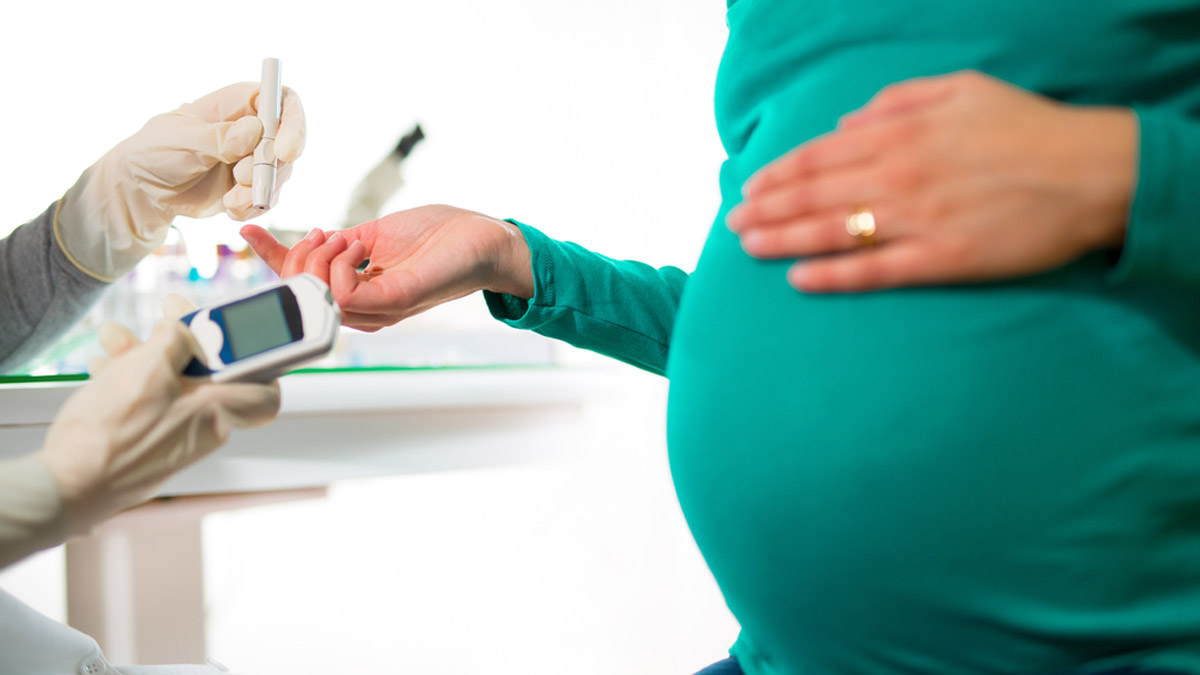
A study by ICMR (Indian Council of Medical Research) states that India accommodates 101 million people with diabetes of which many of them are 20 and above. It said that around 136 million people of India are in the prediabetic stages.
Table of Content:-
Diabetes is prevalent in young adults in India due to sedentary lifestyle and compromised circadian rhythm. Diabetes not only provokes high-risk health problems such as cardiovascular disorders, eye and kidney diseases, but also impacts greatly on your reproductive health.
To understand the effects of diabetes on reproductive health and pregnancy, Only My Health spoke to Dr Theertha Shetty, Consultant – Obstetrician and Gynaecologist at Shetty’s Endoscopic Surgical Centre and Kokan Nursing Home, Mumbai and Clinical Associate at Masrani Hospital For Women, Mumbai.
Impact Of Diabetes On Reproductive Health

Diabetes can acutely impact on your reproductive health, storing high-risk health problems. Dr Shetty said, “Deranged sugars make it difficult to conceive. When it’s associated with other health conditions such as PCOS which is responsible for irregular cycles, conceiving becomes more difficult. Even if you do conceive and your blood sugars are not in control, it increases the risk of miscarriages.”
Diabetes can cause implantation failure as high sugar levels in blood causes hormonal disruptions. Women with diabetes often experience lower fertility rates.
Also read: Prediabetes Diet: 7 Foods You Should Definitely Cut Down On
Impact On Baby & Mother During Pregnancy

According to Dr Shetty, Diabetes can increase the risk of genetic abnormalities in the baby, increase the chances of the baby being overweight and sometimes can even lead to intrauterine fetal death.
Diabetes can even cause premature births. A study by the National Institute of Health, US, stated that women with diabetes are at a high risk of developing ‘preeclampsia’ during pregnancy. Preeclampsia is developing high blood pressure and having too much protein in urine. It can cause life threatening problems for mother and baby. The study said, “The only cure for preeclampsia is to give birth. If you have preeclampsia and have reached 37 weeks of pregnancy, your doctor may want to deliver your baby early. Before 37 weeks, you and your doctor may consider other options to help your baby develop as much as possible before he or she is born.”
When asked about health conditions of a baby delivered by a diabetic mother, Dr Theertha said, “The newborn can have hypoglycaemia, hypocalcemia, hypomagnesemia at birth and the child is at an increased risk of developing diabetes in future.”
Gestational Diabetes

Women with no diabetic history can sometimes develop diabetes during pregnancy when the body cannot produce enough insulin. Dr Theethra explained, “Deranged sugars during pregnancy is called gestational diabetes mellitus.To prevent the same, make sure you maintain a healthy pre pregnancy weight and have normal blood sugars before pregnancy. The risk of gestational diabetes increases if you have a family history of diabetes or if you had gestational diabetes in your previous pregnancy.”
Precautions To Be Taken When Planning Pregnancy
Dr Shetty listed some precautions a diabetic individual should take while planning a pregnancy.
- Ensure your blood sugars and hba1c(glycosylated haemoglobin) are under control
- Maintain a healthy body weight
- Exercise for 30-40 minutes daily
- Choose low glycemic index foods to prevent rapid changes in blood sugar levels
- When trying to conceive, always keep your gynaecologist, diabetologist and nutritionist in the loop who would guide you accordingly for a favourable outcome
Also watch this video
How we keep this article up to date:
We work with experts and keep a close eye on the latest in health and wellness. Whenever there is a new research or helpful information, we update our articles with accurate and useful advice.
Current Version